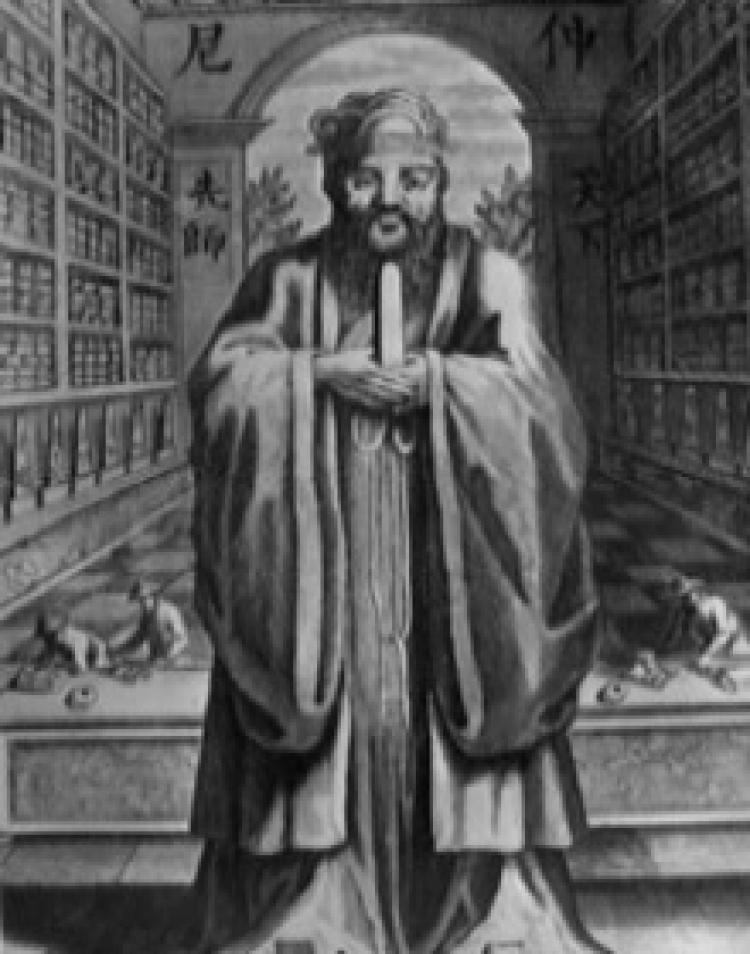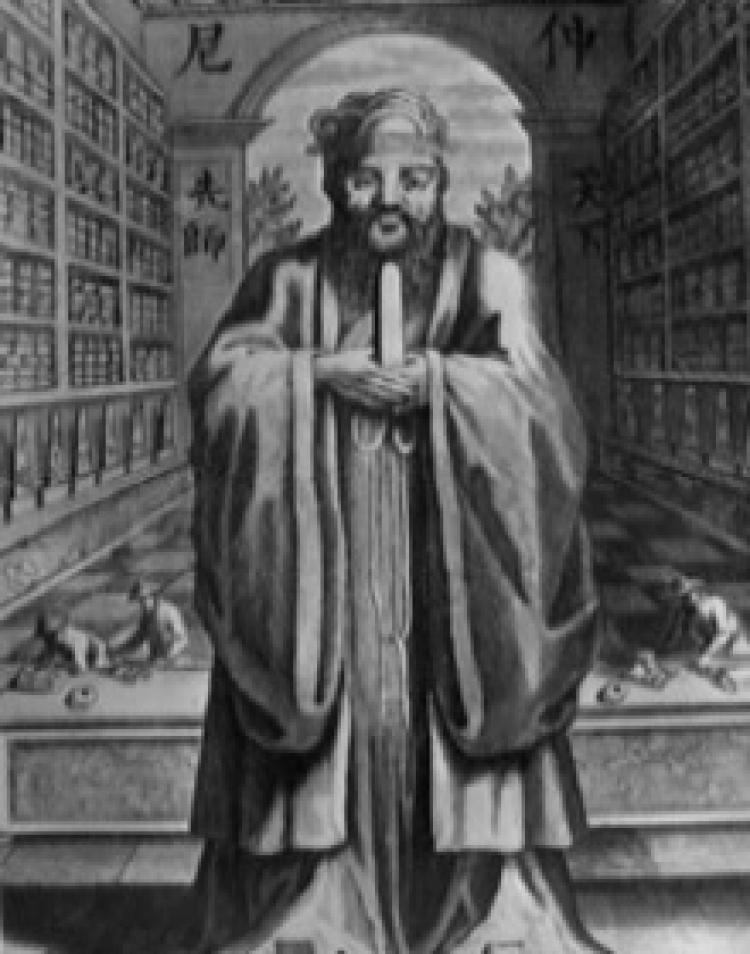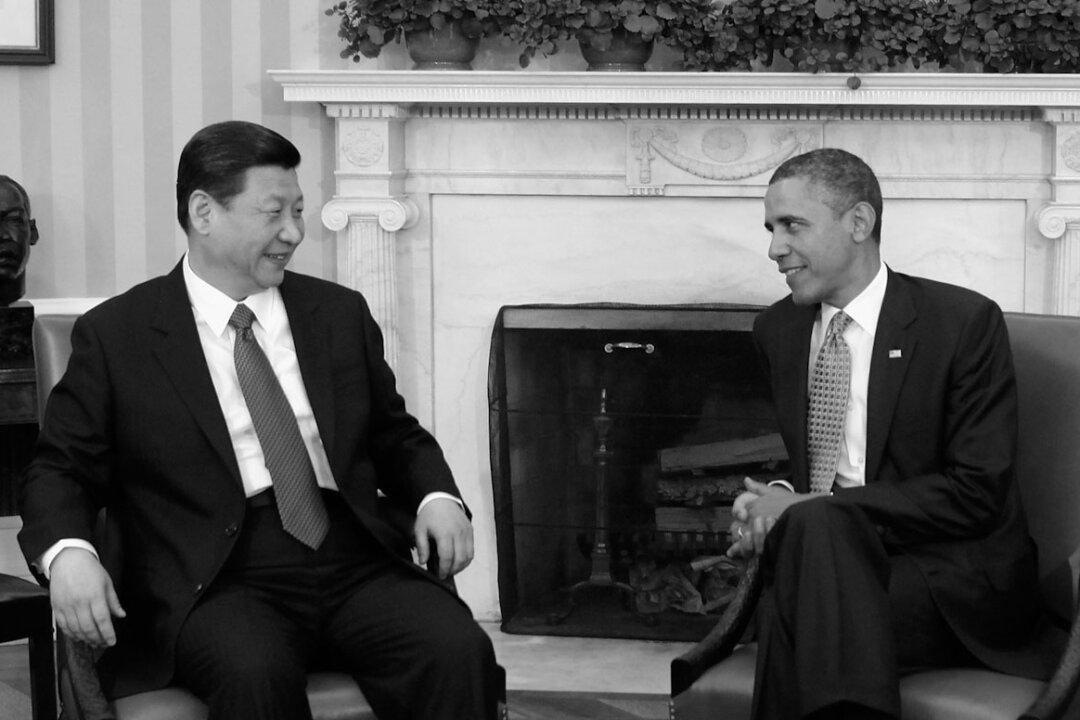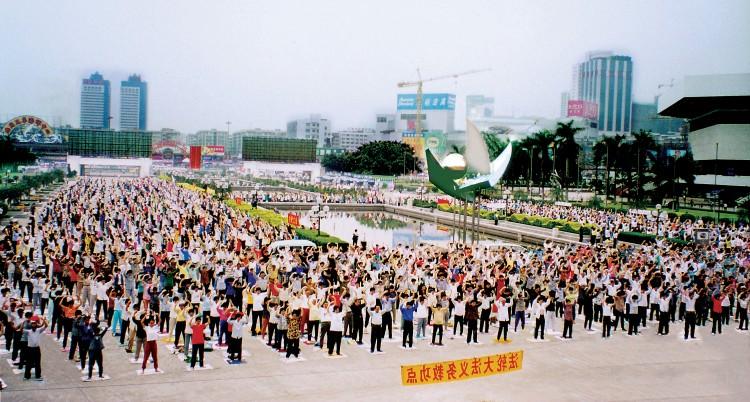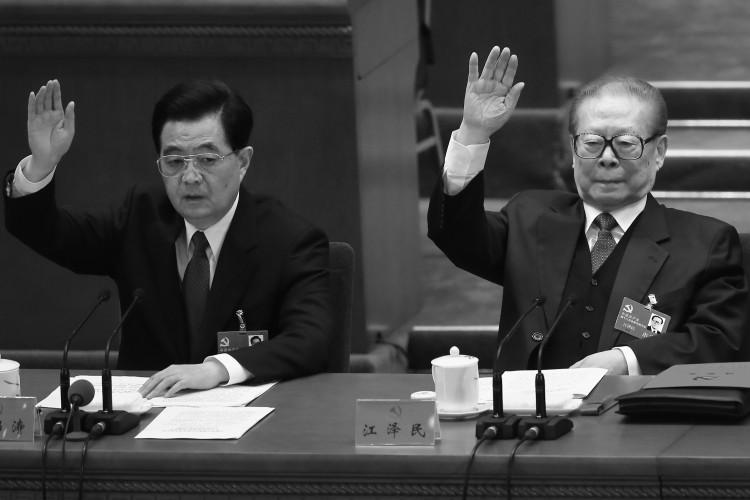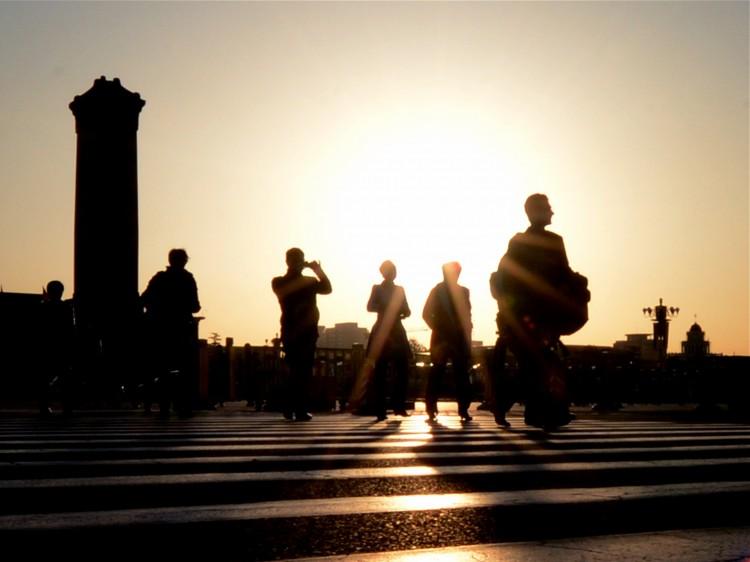Apparently, Confucius was politically rehabilitated by the Chinese Communist Party (CCP). He has twice been revived by the CCP, once as villain and now as hero.
When I was 9 years old and living in China, this old man, who had lived between 551 B.C. and 479 B.C., had made himself the top enemy of the CCP, along with Lin Biao. Lin Biao, who was once Chairman Mao’s right-hand man, died in a mysterious 1971 plane crash as he was fleeing China.
After Lin Biao’s death, Mao launched a political campaign in which everyone in China had to criticize Lin Biao and Confucius in meetings and in writing. We elementary school students had to write papers criticizing the two, following the assessment of the Party.
It was very hard for us to understand why everything Confucius had done and said seemed so evil. Some uneducated farmers imagined that Lin Biao and Confucius were brothers conspiring to overthrow Mao.
I still cannot figure out how Mao made the connection between these two men who lived almost 2,500 years apart. Confucius himself, as wise as he was, may have never imagined that he could still be a threat to the CCP in 1971.
Things have now changed and Confucius has become the CCP’s ambassador to the world.
In 2004, the Chinese Communist leadership decided that they would make a coordinated effort to set up classrooms and institutes around the world to teach Chinese in the simplified form, along with the Party’s version of Chinese culture, under the name of Confucius.
Twelve Chinese state departments and committees have participated in the formation of Confucius Institute Headquarters, which is also called the Chinese Languages Council International. It is led by a member of the Politburo, initially Ms. Chen Zhili, and now Ms. Liu Yandong; both are known protégés of top CCP leaders. In 2004 Ms. Chen had a civil suit filed against her in a Tanzanian court; it accused her of torture and extra judicial killing while carrying out the persecution of Falun Gong, which she did during her time as education minister.
Whenever a Confucius Institute opens you will find President Hu Jintao, Premier Wen Jiabao, or some other top leader of the CCP attending the event. Their attendance shows how important this project is to the leadership.
In five years the project has expanded rapidly. As of October 2009 a total of 523 Confucius Institutes (CIs) and Confucius Classrooms had been established in 87 countries and regions around the world.
What changed that the CCP decided to set up institutes named after Confucius around the world? Confucius did not go through a labor camp nor did he go through the “thought reform” that the CCP uses to rehabilitate those it calls bad elements. Confucius has not changed his teachings either. He still wants everyone to behave virtuously, including government officials. He wants people to treat each other with respect and care. He wants people to constantly learn and think critically and independently. He wants people not to impose anything on others if they do not choose it for themselves.
According to the doctrines of communism, Marxism, Leninism, and Mao Zedong thought, which are still the guiding principles of the CCP, Confucius’s teachings would seem to be very dangerous if the Chinese people began to follow them and apply them to the government.
Some people have excitedly wondered whether in establishing Confucius Institutes the regime was changing and giving up communism. One person, Hu Jintao, disagrees with them. He is the president of China, the secretary-general of the Chinese Communist Party, and the chairman of the Chinese Military Central Committee. According to his recent speeches, the CCP’s strategic goal is to enhance the study of Marxism, Leninism, and Mao Zedong thought by the officials of the regime and build up a stronger Communist Party.
Strength is what is behind the CCP’s turn to Confucius. In the last 20 years, the CCP has been looking to expand its influence by developing so-called soft power, in addition to its economic and military build up. The CCP has been looking for every opportunity to implement its so-called “da wei jiao” and “da wei xun”—“greater diplomacy” and “greater international propaganda.”
The essence of greater diplomacy is to unite everyone in the world in order to benefit the CCP’s strategic goals. This tactic is also called establishing the most extensive “tong yi zhan xian”—the united front—one of the three treasures that has brought and kept the CCP in power.
The essence of the greater international propaganda is to influence public opinion and governments’ judgments regarding relationships with the CCP. In particular, the greater international propaganda seeks to convince people that Communist China is a benign partner rather than a hidden threat.
According to Li Changchun, one of the nine standing members of the Politburo of the Chinese Communist Party and the propaganda chief, Confucius Institutes serve both purposes well.
He is absolutely right. The Confucius Institutes have become a place where Chinese diplomats frequently interact with the students, faculty, and government officials of the host countries. The Institutes can send out qualified teachers to the host countries who advocate for the CCP while providing information and consultation on China to the host country.
Of course, according to the regulations of the Confucius Institutes’ headquarters, the institutes will only teach the CCP-approved version of Chinese language and culture. In addition, the institutes have to abide not only by the laws and regulations of the host country, but also by the laws and regulations of China. That means China is expanding its governance onto foreign soil. No wonder the CCP has pushed the institutes anywhere it can by means of money and connections.
I just feel very sorry for Confucius; he is once again involuntarily revived by the CCP, this time as a cover for its international communist ambition. Make no mistake, Confucius: do not ever think that you would be allowed to start a Confucius Institute of your own in today’s China.
When I was 9 years old and living in China, this old man, who had lived between 551 B.C. and 479 B.C., had made himself the top enemy of the CCP, along with Lin Biao. Lin Biao, who was once Chairman Mao’s right-hand man, died in a mysterious 1971 plane crash as he was fleeing China.
After Lin Biao’s death, Mao launched a political campaign in which everyone in China had to criticize Lin Biao and Confucius in meetings and in writing. We elementary school students had to write papers criticizing the two, following the assessment of the Party.
It was very hard for us to understand why everything Confucius had done and said seemed so evil. Some uneducated farmers imagined that Lin Biao and Confucius were brothers conspiring to overthrow Mao.
I still cannot figure out how Mao made the connection between these two men who lived almost 2,500 years apart. Confucius himself, as wise as he was, may have never imagined that he could still be a threat to the CCP in 1971.
Things have now changed and Confucius has become the CCP’s ambassador to the world.
Confucius Institutes
In 2004, the Chinese Communist leadership decided that they would make a coordinated effort to set up classrooms and institutes around the world to teach Chinese in the simplified form, along with the Party’s version of Chinese culture, under the name of Confucius.
Twelve Chinese state departments and committees have participated in the formation of Confucius Institute Headquarters, which is also called the Chinese Languages Council International. It is led by a member of the Politburo, initially Ms. Chen Zhili, and now Ms. Liu Yandong; both are known protégés of top CCP leaders. In 2004 Ms. Chen had a civil suit filed against her in a Tanzanian court; it accused her of torture and extra judicial killing while carrying out the persecution of Falun Gong, which she did during her time as education minister.
Whenever a Confucius Institute opens you will find President Hu Jintao, Premier Wen Jiabao, or some other top leader of the CCP attending the event. Their attendance shows how important this project is to the leadership.
In five years the project has expanded rapidly. As of October 2009 a total of 523 Confucius Institutes (CIs) and Confucius Classrooms had been established in 87 countries and regions around the world.
What changed that the CCP decided to set up institutes named after Confucius around the world? Confucius did not go through a labor camp nor did he go through the “thought reform” that the CCP uses to rehabilitate those it calls bad elements. Confucius has not changed his teachings either. He still wants everyone to behave virtuously, including government officials. He wants people to treat each other with respect and care. He wants people to constantly learn and think critically and independently. He wants people not to impose anything on others if they do not choose it for themselves.
According to the doctrines of communism, Marxism, Leninism, and Mao Zedong thought, which are still the guiding principles of the CCP, Confucius’s teachings would seem to be very dangerous if the Chinese people began to follow them and apply them to the government.
Some people have excitedly wondered whether in establishing Confucius Institutes the regime was changing and giving up communism. One person, Hu Jintao, disagrees with them. He is the president of China, the secretary-general of the Chinese Communist Party, and the chairman of the Chinese Military Central Committee. According to his recent speeches, the CCP’s strategic goal is to enhance the study of Marxism, Leninism, and Mao Zedong thought by the officials of the regime and build up a stronger Communist Party.
Greater Diplomacy and Greater International Propaganda
Strength is what is behind the CCP’s turn to Confucius. In the last 20 years, the CCP has been looking to expand its influence by developing so-called soft power, in addition to its economic and military build up. The CCP has been looking for every opportunity to implement its so-called “da wei jiao” and “da wei xun”—“greater diplomacy” and “greater international propaganda.”
The essence of greater diplomacy is to unite everyone in the world in order to benefit the CCP’s strategic goals. This tactic is also called establishing the most extensive “tong yi zhan xian”—the united front—one of the three treasures that has brought and kept the CCP in power.
The essence of the greater international propaganda is to influence public opinion and governments’ judgments regarding relationships with the CCP. In particular, the greater international propaganda seeks to convince people that Communist China is a benign partner rather than a hidden threat.
According to Li Changchun, one of the nine standing members of the Politburo of the Chinese Communist Party and the propaganda chief, Confucius Institutes serve both purposes well.
He is absolutely right. The Confucius Institutes have become a place where Chinese diplomats frequently interact with the students, faculty, and government officials of the host countries. The Institutes can send out qualified teachers to the host countries who advocate for the CCP while providing information and consultation on China to the host country.
Of course, according to the regulations of the Confucius Institutes’ headquarters, the institutes will only teach the CCP-approved version of Chinese language and culture. In addition, the institutes have to abide not only by the laws and regulations of the host country, but also by the laws and regulations of China. That means China is expanding its governance onto foreign soil. No wonder the CCP has pushed the institutes anywhere it can by means of money and connections.
I just feel very sorry for Confucius; he is once again involuntarily revived by the CCP, this time as a cover for its international communist ambition. Make no mistake, Confucius: do not ever think that you would be allowed to start a Confucius Institute of your own in today’s China.
